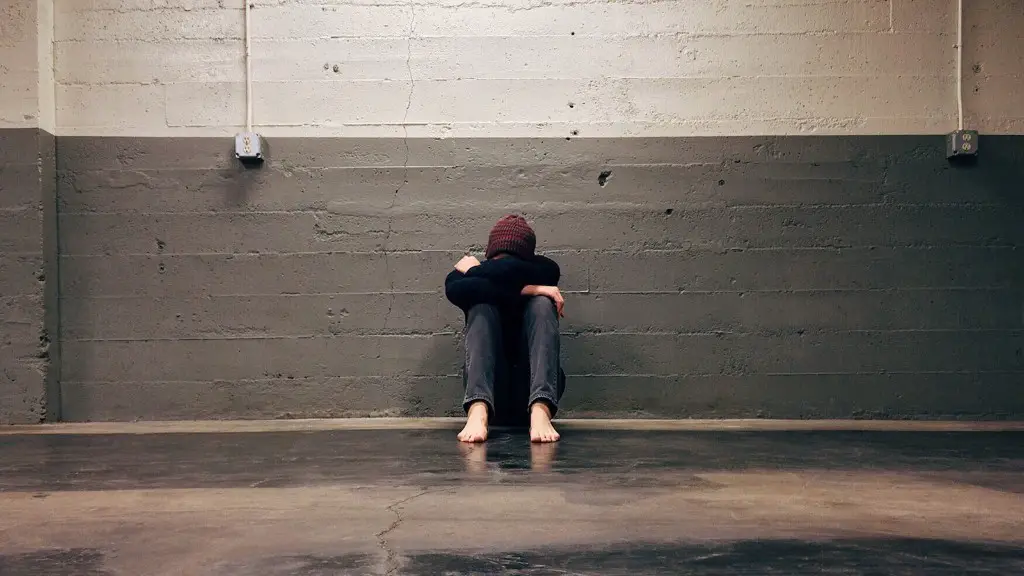A stress interview is an interview in which the interviewer deliberately tries to upset or unnerve the interviewee. The interviewer may use belligerent or confrontational tactics, ask rapid-fire questions, give long, vague answers, or make aggressive body language. The goal of the stress interview is to see how the interviewee reacts under pressure and to find out if they have the ability to think on their feet.
A stress interview is a type of interview in which the interviewer deliberately tries to stress the interviewee in order to get a sense of how they react under pressure. This can be done in a number of ways, such as asking difficult or unexpected questions, interrupting the interviewee, or keeping them waiting for long periods of time. The goal of a stress interview is to see how the interviewee reacts to stressful situations and whether they are able to remain calm and collected under pressure.
How does a stress interview work?
A stress interview is a way to test an applicant’s ability to think on their feet, react under pressure, and remain calm in a stressful environment. This type of interview is often used by employers to see how well an applicant would handle a difficult or challenging situation.
A stress interview is an interview designed to test a candidates’ ability to handle difficult questions and challenging situations. To prepare for a stress interview, candidates should conduct company research, review interview question examples, practice stress management techniques, take part in practice interviews, and receive practice interview feedback.
Why do most employers ask stress interview questions
by asking behavioral interview questions, the interviewer is trying to get a better understanding of how the candidate would handle various stressful situations at work. the candidate should use this opportunity to highlight their skills and provide specific examples of how they have handled similar situations in the past.
The most stressful situation I’ve faced at work so far was when I was managing a team of people and we were up against a tight deadline. I had to keep everyone on track and make sure that we met the deadline. I handled it by staying calm and focused, and I was able to get the team to work together to meet the deadline. I prevent a situation from getting too stressful to manage by staying organized and keeping a positive attitude. I would advise a colleague who’s stressed out about a deadline to take a deep breath and relax, then focus on the task at hand.
How well do you deal with stress interview question?
When interviewers ask how you handle stress, they are looking to see if you can maintain your composure under pressure and if you have the ability to stay calm and focused in difficult situations. To answer this question successfully, you’ll want to provide specific examples of how you’ve handled stress well in the past. You might also provide examples of times when pressure made you work more productively. By giving specific examples, you’ll be able to show the interviewer that you’re able to handle stress in a productive and positive way.
In a job interview, it is important to make a good impression and to focus on your positive attributes. You want your interviewer to remember your good qualities, not any mistakes you might have made. To make sure your interviewer remembers you for the right reasons, avoid common interview pitfalls like talking negatively about your previous company or boss, or sounding too eager and willing to do whatever is asked of you. Instead, focus on highlighting your skills and accomplishments, and be prepared to talk about why you would be a good fit for the job.
What are the pros and cons of a stress interview?
A stress interview is when a business applies pressure to a candidate in order to see how they react under pressure. While this can give the business an idea of how the candidate might perform under pressure, it can also create a negative experience for the candidate, which could lead to them declining an offer if one is made.
Stress interviews are not an effective way to assessment someone’s competencies or to get to know them as a person. The confrontational nature of a stress interview usually makes people guarded and defensive, and this prevents interviewers from seeing the real person and their competencies. Stress interviews can also damage public relations.
Is stress interview a structured interview
A stress interview is designed to test a candidate’s ability to handle difficult situations. The interviewer may deliberately try to make the candidate feel uncomfortable, so it’s important to remain calm and polite throughout the interview. Be prepared to answer questions about how you would deal with difficult customers, projects falling behind schedule, or other stressful situations.
Hi,
It’s important to take care of yourself both mentally and physically, especially when you’re feeling stressed. Here are some healthy ways to deal with stress:
-Take breaks from watching, reading, or listening to news stories, including those on social media.
-Take care of yourself. Make sure you’re eating right, getting enough sleep, and exercising.
-Make time to unwind. Do something you enjoy, such as reading, painting, or going for a walk.
-Talk to others. Whether it’s a family member, friend, or therapist, talking about your stress can help you feel better.
-Connect with your community or faith-based organization. There’s strength in numbers, and you can often find support and understanding from others who are going through similar experiences.
Avoiding drugs and alcohol is also important, as they can end up making your stress levels worse in the long run.
Can you work under pressure interview question?
I work well under pressure because I use the pressure to help me work more efficiently. I enjoy working under pressure because I believe it helps me grow. In my previous experience, I always worked well during deadlines, and I always learned how to work more efficiently afterwards.
These are great questions to ask at the end of your next job interview! They will help you get a better understanding of the organization and its culture, as well as the supervisors and what they expect from employees. Asking these questions will also show that you are interested in the company and are looking for ways to be successful in the role.
What is the one word not to say in an interview
Filler words can be really annoying, especially when you’re not sure what to say next. In an interview, filler words can make you look like you lack confidence or you’re unsure of yourself. Worst of all, it can make you look like you’re not being honest.
The most difficult interview questions for me are always the ones that catch me off guard. I might be able to easily answer why I want the job or why should you hire me, but when it comes to my greatest weakness or something I didn’t like about my last job, I’m often not as prepared.
For the question about my greatest weakness, I always try to be honest and give an example of something that I’m working on improving. For instance, I might say that I tend to be a perfectionist or that I sometimes have trouble delegating tasks. As for the question about my last job, I try to be positive and avoid any negativity.
Conflict with a co-worker is always a difficult situation to talk about, but I try to be diplomatic and share a situation where I was able to resolve the issue. Overall, I think it’s important to be honest, positive, and prepared for any difficult questions that might come up in an interview.
What can ruin an interview?
1. Arriving late: This is a huge mistake and will definitely make a bad first impression.
2. Jumping into the discussion of pay and benefits: This shows that you are only interested in what the company can do for you, and not what you can do for the company.
3. Answering your phone: This shows that you are not fully focused on the interview and are not interested in giving your full attention to the interviewer.
4. Talking badly about your previous or current employer: This will make you look bad and unprofessional.
5. Being brief, hiding from questions, or talking too much: You need to be able to answer questions in a clear and concise manner, without rambling on or avoiding the question.
6. Dressing inappropriately: This shows that you do not take the interview process seriously and do not respect the interviewer’s time.
7. Being unprepared: This is one of the worst things you can do in an interview. It shows that you are not serious about the position and have not taken the time to research the company or the role.
8. Not asking questions: This makes it seem like you are not interested in the position or the
The debate on the ethics of stress interviews is ongoing. Some theorists argue that stress interviews are an effective way to identify candidates with the best problem-solving abilities. Others argue that stress interviews create an unhealthy relationship between the interviewee and the company. The jury is still out on this issue, and more research needs to be done to determine the best way to conduct interviews.
Final Words
A stress interview is when an interviewer tries to make a candidate feel nervous or uncomfortable in order to see how they react under pressure. This can be done in a number of ways, such as asking tough or unexpected questions, talking rapidly, or interrupting the candidate. The goal is to see how the candidate copes with stress and whether they are able to think clearly and remain calm under pressure.
A stress interview is an interview in which the interviewer deliberately tries to stress the interviewee in order to see how they react under pressure. The interviewer may do this by asking difficult or unexpected questions, or by keeping the interviewee on their feet by not allowing them to sit down. The goal of a stress interview is to see how the interviewee copes with stress and to see if they are able to think clearly and remain calm under pressure.





